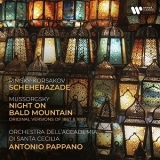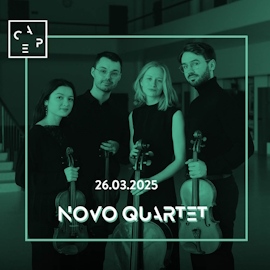Auf eine Scheherazade mit Pappano hatte ich mich gefreut. Aber die Erwartung wurde enttäuscht. An dieser Aufnahme klingt vieles falsch. Pappano interessiert sich am meisten für das Personendrama und entsprechend stark wendet er sich diesem zu. Er tut das in intimistischem Rahmen, dynamisch sehr reduziert, mit vielen liebevoll herausgearbeiteten Details und kontrastiert so dieses Intime mit dem Orchesterrausch den Rimsky-Korsakov vorgesehen hat. Aber diese Differenzierung ist für mein Empfinden zu stark, sie wirkt unnatürlich und beeinträchtigt den Fluss der Musik. Vor lauter Details und Einzelszenen sieht man das Ganze nicht mehr, und die Musik wird anekdotisch.
Transparenz im Orchesterklang ist ja etwas was wünschenswert ist, aber hier geht sie auf Kosten des symphonischen Impacts. Das liegt auch an der Aufnahme, die sehr in die Tiefe angelegt ist und das Orchester nicht mehr wirklich zusammenhält, weil die Distanzen einfach nicht stimmen und die Geigen viel zu dünn klingen in dem Ganzen.
Eine Scheherezade lebt von orientalischem Zauber und klanglicher Opulenz. Das zusammen zu bringen ist Pappano nicht gelungen, nicht zuletzt wegen durchgehend zu breiten Tempi.
Mussorgskys Nacht auf dem Kahlen Berg ist von der Interpretation her viel besser, aber die Aufnahme ist immer noch wegen falscher Distanzen im Klangraum nicht besonders gut. Von Interesse ist der letzte Track mit der Fassung für Chor & Orchester für Mussorgskys Komische Oper ‘Der Jahrmarkt von Sorotschynzi’.
I was looking forward to a Scheherazade with Pappano. But my expectations have been disappointed. Many things sound wrong in this recording. Pappano is most interested in the personal drama, and he devotes himself to it accordingly. He does this in an intimate setting, dynamically very reduced, with many lovingly worked out details, and thus contrasts this intimacy with the orchestral frenzy that Rimsky-Korsakov intended. But this differentiation is too strong for my taste, it seems unnatural and disturbs the flow of the music. One can no longer see the whole because of all the details and individual scenes, and the music becomes anecdotal.
Transparency in the orchestral sound is something that is desirable, but here it is at the expense of the symphonic effect. This is also due to the recording, which is displayed in the depth and this sound does not really hold the orchestra together, because the distances are simply not right and the violins sound far too thin.
A Scheherezade lives on oriental magic and tonal opulence. Pappano failed to bring this together, not least because the tempi were too wide throughout.
Mussorgsky’s Night on Bald Mountain is much better interpreted, but the recording is still not very good because of the wrong distances in the sound space. Interesting is the last track with the version for choir & orchestra of Mussorgsky’s comic opera ‘The Sorochyntsi Fair’.





















